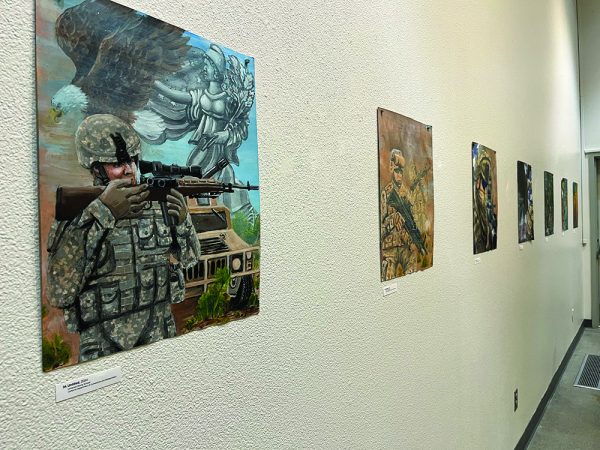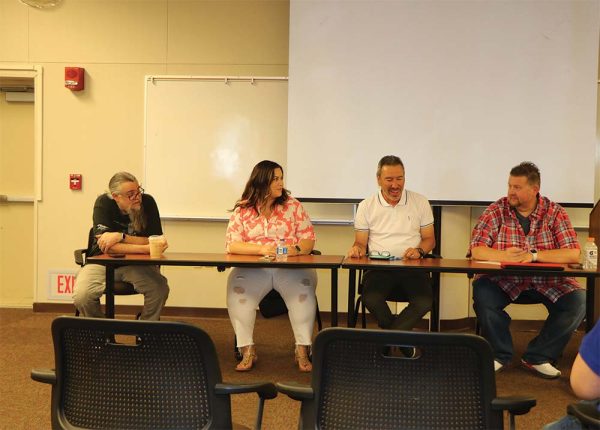BC Academic Senate discuss changing the academic calendar
October 29, 2021
BC’s academic senate virtually gathered to discuss the possibility of changing the academic calendar. This would be done with the introduction of a winter intersession that would change the structure of the year. The virtual meeting took place on Wednesday, Oct. 20.
The idea was introduced by Dean Bill Mosely, who had been tasked with researching the idea of the winter intersession.
Mosely’s job was to find a way to relieve bottlenecks in programs with multi-course prerequisite sequences in STEM fields, most notably the Biology department which was stated to need this aid the most.
The plan is to incorporate this new structure to help these fields in the 2022-2033 academic year.
Proposed to the academic senate were three drafts: Proposal 1, 1b, and 2.
Proposal 1 would begin earlier on Aug. 6, and have three weeks of intercession in December and three weeks in January. Final exams would start the Thursday or Friday before Thanksgiving week and end the week of. Spring break would occur two weeks later than the current schedule.
Proposal 1b is similar, however, but begins 1 week earlier, resulting in finals ending the week before Thanksgiving week, and the intercession would begin the following Monday. There would be four intercession weeks in December and two in January, and Spring break would begin one week later instead.
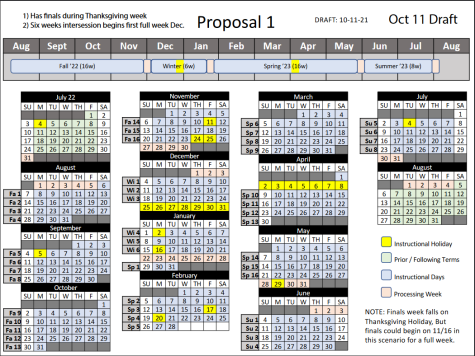
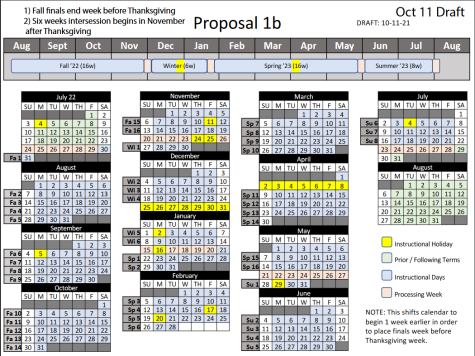
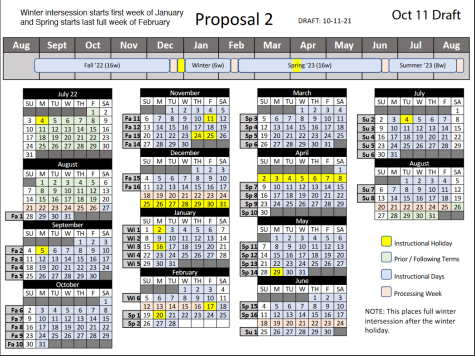 Proposal 2 would begin the intercession in January, and Spring semester would begin the last week of February and end midway into June.
Proposal 2 would begin the intercession in January, and Spring semester would begin the last week of February and end midway into June.
Mosely, who designed the proposals, explains that this was created with the idea to include more classes within the academic calendar to allow for more opportunities and help keep students on track.
“While the Biology department is one of the more vocal supporters of this effort, we believe that it could be beneficial to students from a variety of majors and areas of campus. In particular, students who work, students in high unit majors, and students whose majors require multiple levels of prerequisites for completion could all benefit from this change,” he explains.
The plan now is to introduce the concept to the student body, then begin surveying responses and potentially reveal student issues that have not yet been considered.
“Clearly, this is a big project that involves the whole campus, so it needs to be undertaken with a lot of care and information gathering,” Mosely added.





